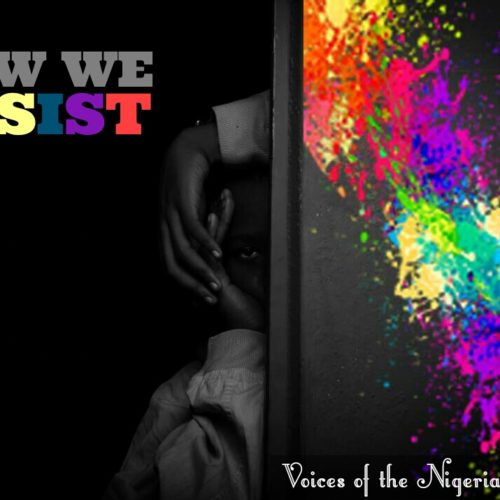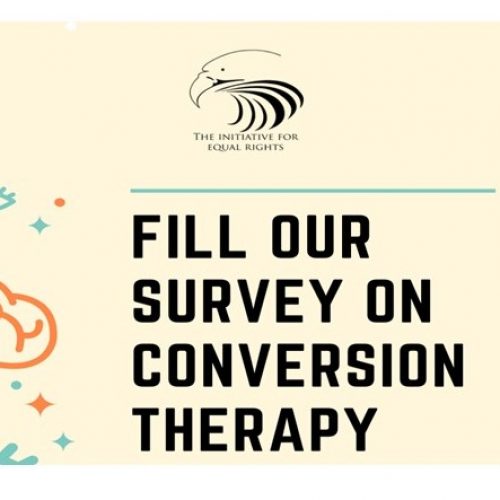10 Myths About HIV That Need to Be Busted
You know what they say: a lie can travel halfway round the world while the truth is still lacing up its shoes. That’s certainly true for HIV, a virus that has had more myths written about it than almost any other.
The myths around HIV, unfortunately, do nothing but spread misinformation and increase the stigma around the illness. To that end, knowing the truth about HIV is an important step in helping fight it.
Here are the most prolific myths about the virus and the truth behind each misconception.
1 HIV is a death sentence.
For a long time, because of the lack of response to an epidemic that affected queer people and people of color, living with HIV often meant dying earlier than expected. And while things like racism and homophobia still play a huge role in determining someone’s health, HIV itself is no longer the virus it was when the AIDS epidemic began in the 1980s. In fact, the latest science shows that people living with HIV can live an average life span. In one European study, a 20-year-old living with HIV now has a life expectancy of 78.
2 Some people have been cured.
Most likely because there are so few media images of people living with HIV and being healthy, the myth of an HIV cure persists. For celebrities like former basketball player Magic Johnson, he has to put the myth to bed with every interview. How does Johnson respond to these claims? By reminding people how effective HIV meds are. In 2015, he told Sirius XM radio station Hip Hop Nation, “The drugs have done their part and I’ve done my part by exercising and having a positive attitude about having HIV.” He added, “The same 30-something drugs are available to everybody else. I’m on three of them,” Johnson said.
3 You’ll be able to tell if you have HIV.
While some people might experience flu-like symptoms after acquiring HIV, the truth is, there’s only one surefire way to know if you have it: get tested. According to the CDC, about one-eighth of the US population living with HIV doesn’t know they have it, and they account for a disproportionate amount of infections. A recent estimate showed that 91% of HIV transmissions occur from people who don’t know they’re positive or people who are not on treatment.
4 Having sex with an HIV-positive person automatically puts you at risk for HIV.
When an HIV-positive person takes their medications and successfully lowers the amount of virus in their blood, it’s known as being undetectable. While this has a bunch of health benefits for the person living with HIV, it also means that they are unlikely to pass on the virus. In fact, a growing medical consensus is declaring that undetectable equals untransmittable, or U=U, meaning those with an undetectable viral load actually can’t transmit the virus. The Centers for Disease Control and Prevention recently declared this, as well.
5 HIV-positive people can’t have children.
It may seem like HIV puts things like having kids out of reach for some people, but that’s not true. With medication and the help of a health care provider, people living with HIV can experience parenthood and not worry about the baby’s HIV status.
6 HIV is a gay disease.
Unfortunately, stigma and homophobia have caused people to think that HIV only happens to gay men. But HIV doesn’t discriminate and it can happen to anyone. However, while HIV can happen to anyone, it does proliferate in several marginalized communities like queer people, transgender people, people of color and people living in poverty — and people who have multiple marginalized identities. The CDC even agrees that the virus is concentrated in these groups, which often lack access to education and health care.
7 Only promiscuous people get HIV.
It doesn’t matter whether you’ve had sex once or one hundred times. HIV is not a punishment for promiscuity and it’s not any more likely to happen if you’re out of a relationship than if you’re in one. Having as much sex as you want and staying HIV negative can go hand in hand. Get tested regularly to know your status and use whatever prevention method works best for you, like condoms or PrEP, and fun is always on your menu.
8 Condoms are the only way to prevent HIV.
In the year 2017, there is now a long list of ways to protect against HIV, many of which can be used together. What’s most important is that you find the method that works for you. Pre-exposure prophylaxis, or PrEP, is over 99% effective for people who take it 7 days a week. And, a worldwide trial has begun for long-acting injectable PrEP that wouldn’t require daily adherence.
9 HIV stigma is no longer an issue.
For many people living with HIV, it’s the stigma and negative attitudes about their status, and not the virus itself, that causes most problems. In many US states, HIV criminalization laws mean that HIV-positive people have to fear jail time just for being intimate. And in many communities, HIV stigma means that living with HIV means being seen as undesirable. What’s clear is, while medicine is making HIV less and less of a health problem, stigma and discrimination continue to make it a social one.
10 Getting tested for HIV is a hassle.
There may be no perfect way to get tested for HIV. It may be difficult for you to schedule a testing appointment that makes sense with your work and life obligations.
About author
You might also like
Public Notice: Search For Accommodation
Two KDians are looking for accommodation. If their conditions fit the criteria of anyone with accommodation to give, do kindly reach out to the email addresses provided. 1. I’m
#HowIResist Campaign 3
You must first accept yourself. You must first approve your own existence, in whatever form you exist. You must first realize that you do not need any validation outside that
TIERs Wants Your Take On Conversion Therapy In Nigeria
We are aware that conversion therapy happens around Nigeria to LGBTI+ persons. However, data on this issue is limited and almost nonexistent. The Initiative for Equal Rights is carrying out










1 Comment
Manach
December 05, 12:49While no.7 needs to be amended,it is not so much a myth but an overstatement.
Most promiscuous people are liable to get HIV.
Let’s not bury our heads in the sand like the ostrich.HIV first spread like wildfire mainly due to promiscuity. Ignorance and stigmatization kept the fire burning,but never should we downplay the role of promiscuousness in the whole mess